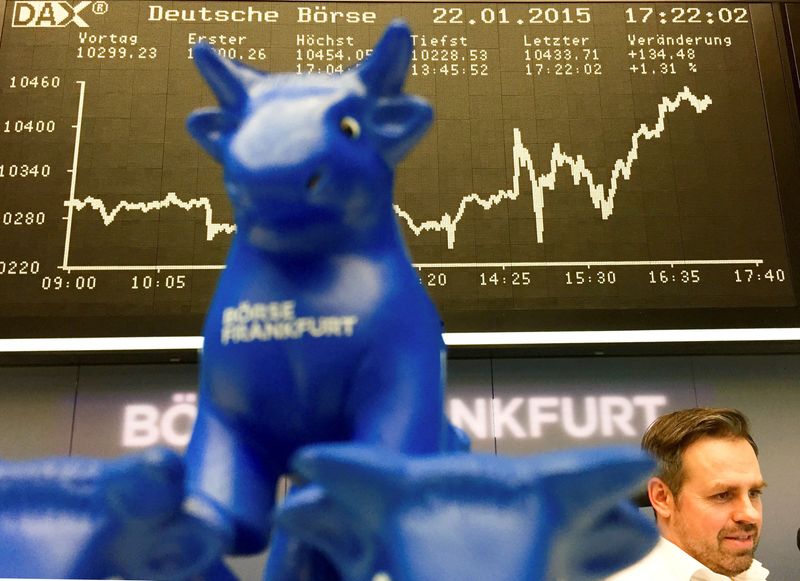This post was originally published on this site

Investing.com – European stock markets edged higher Monday, but gains are limited as investors assessed the potential for further monetary policy tightening ahead of key U.S. inflation data and fresh quarterly Eurozone economic forecasts.
At 03:40 ET (08:40 GMT), the DAX index in Germany traded 0.2% higher, the CAC 40 in France climbed 0.4% and the FTSE 100 in the U.K. rose 0.2%.
Investors have started the new week in a cautious manner as they await the release of highly significant U.S. consumer inflation data on Tuesday.
Although the annual figure is expected to show further easing in inflation in January, it is still expected to remain relatively high, which could invite more interest rate hikes by the Federal Reserve.
Back in Europe, the European Commission is set to release quarterly economic forecasts for the euro area on Wednesday.
Europe’s economy has proved more resilient than feared in the face of Russia’s war in Ukraine, with Tuesday’s revised Eurozone GDP expected to confirm quarterly growth of 0.1% in the final quarter of 2022.
This could provide the European Central Bank with room to continue hiking interest rates in their battle with inflation, something ECB board member Isabel Schnabel touched on late last week.
The ECB must still raise interest rates significantly as broad disinflation has not yet started, even if overall price growth has been declining quickly, she said on Friday.
In the corporate sector, Castellum (ST:CAST) stock fell 4.4% after the Swedish property company proposed a SEK 10 billion ($1 = SEK 10.4563) rights issue to strengthen its balance sheet.
Oil prices weakened Monday on worries a persistently hot inflationary outlook could cause the U.S. Federal Reserve to continue tightening monetary policy for longer than expected, severely impacting growth in the largest crude consumer in the world.
Also weighing was the resumption of Azerbaijani oil exports at Turkey’s Ceyhan terminal over the weekend after the earthquake earlier this month in the region had disrupted supply.
By 03:40 ET, U.S. crude fell 1.1% to $78.86 a barrel, while the Brent contract fell 1% to $85.56.
Both contracts gained over 2% on Friday after Russia stated it will cut supply by 500,000 barrels per day from March, citing the price curbs on its exports imposed by western powers in punishment for its invasion of Ukraine.
Additionally, gold futures fell to $1,873.05/oz, while EUR/USD traded 0.1% higher at 1.0679.


